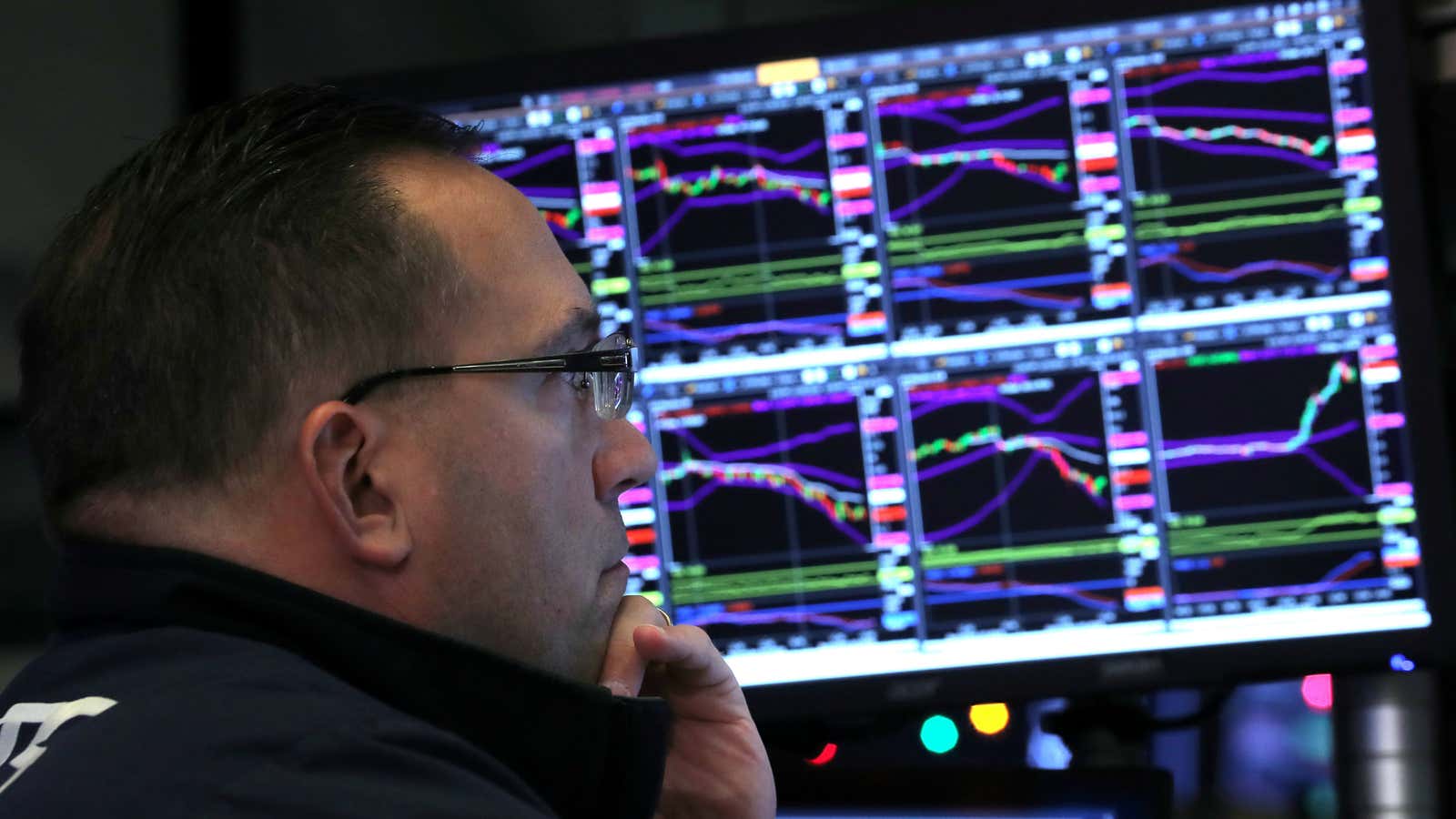On the whole, the numbers were pretty good: US employers added 155,000 jobs in November, below October’s bumper 237,000 gain but still a healthy pace. Today’s report also featured the 98th consecutive month of job gains, by far the longest stretch on record.
Meanwhile, the unemployment rate held at 3.7%, the lowest in around 50 years, while average hourly earnings rose by 3.1% from a year ago, the same pace as the previous month, which was the highest rate since 2009.
But this backwards look at the US economy might not be enough to calm traders who believe trouble is lurking around the corner.
Traders have reduced their expectations for a series of future rate hikes by the Federal Reserve. Analysts at Commerzbank said just one interest hike was fully priced in for next year; a few months ago, markets were pricing in three rate increases in 2019.
The bond market reflects this trepidation. Earlier this week, the US yield curve partially inverted—meaning that longer-dated interest rates were lower than short-dated ones—which implies that a rates will be lowered in the future, most likely to combat an economic slowdown. The inverted yield curve has become a harbinger of recession, appearing in markets ahead of all but one recession since the 1960s.
This isn’t to say a recession is imminent. There is an average lag of 21 months between the yield curve inverting and recession, according to Deutsche Bank (paywall). Additionally, this week’s inversion happened at the short end of the curve (5-year yields lower than 2- and 3-year yields), whereas the common indicator is for 10-year yields to fall below 2-year yields.
For stock traders, worries about an economic slowdown are compounded by signs that the US-China trade war will intensify. The world’s two largest economies agreed to a 90-day truce last week at the G20, but it started to unravel just two days later when Donald Trump tweeted “I am a Tariff Man” and details of the agreement didn’t stand up to scrutiny. The next day, news broke that Huawei’s chief financial officer, Meng Wanzhou, the daughter of the Chinese tech giant’s founder, had been arrested. Meng was detained at a Canadian airport on a US extradition request, fueling concerns about how long the truce will last.
For now, though, the US jobs report signals steady growth and is a welcome respite for markets. At the time of writing, an index of the dollar against a basket of major of currencies, the S&P 500 index, and US Treasury yields were all more or less flat on the day.
There’s enough good news in this report that when the Fed meets on Dec. 18-19 it will probably raises interest rates, as most traders expect. This week, Fed chair Jerome Powell said that the economy was “performing very well overall” and the job market was “very strong.” Next year, Fed policymakers say they will need more data to confirm whether recent market pessimism is warranted and action may be needed.
